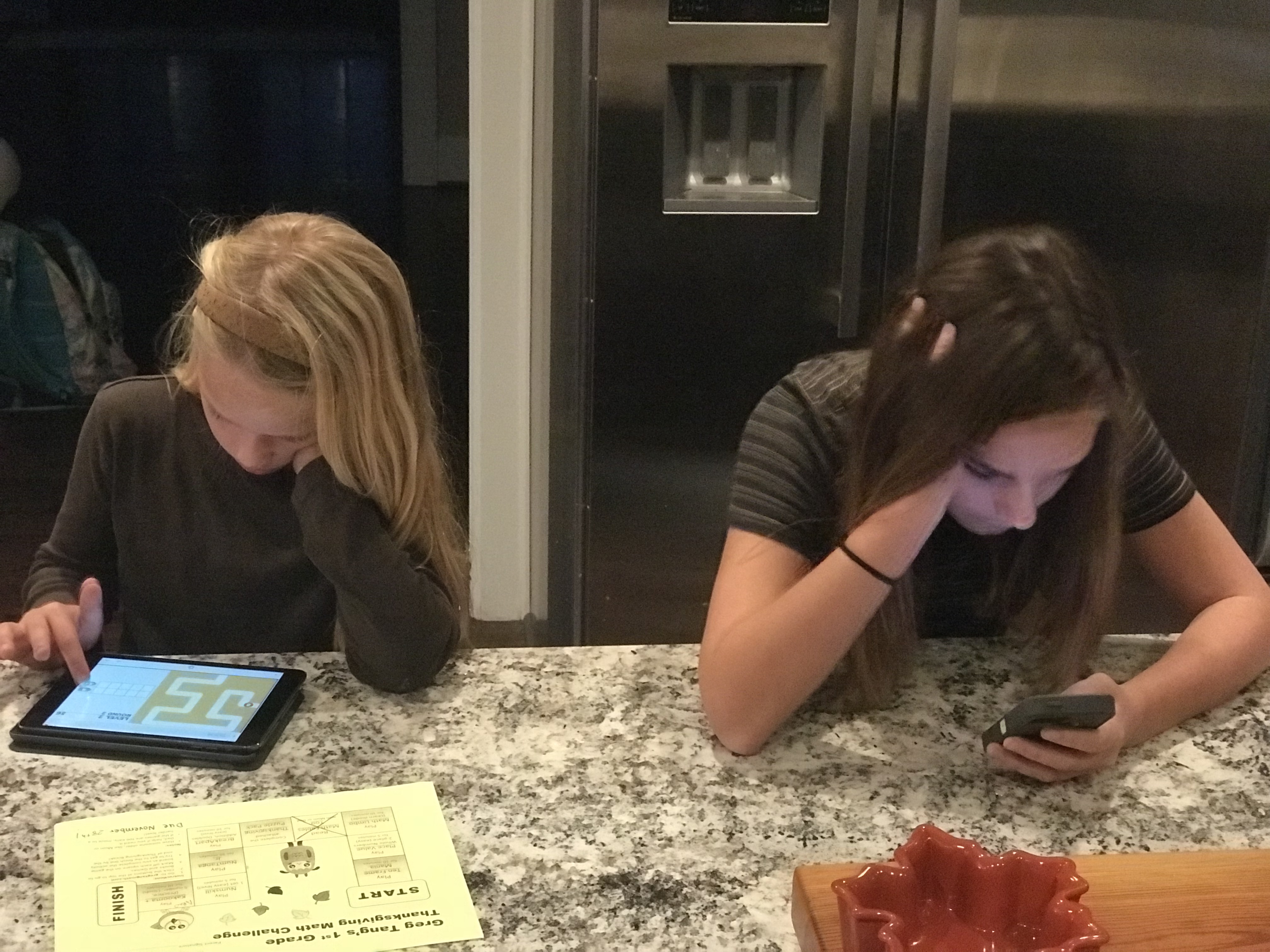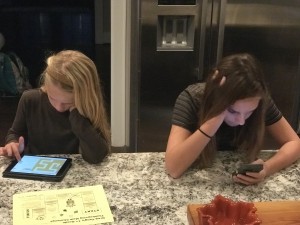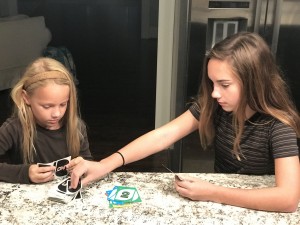By April Whitlock of Fundanoodle
As the holiday gift giving season approaches, I am begging parents, grandparents, aunts and uncles of preschool age children to strike any touchscreen based gifts off the shopping list.
And I’m not asking you to do this because I own a non-tech, hands-on learning products company. Though, interestingly, I think the founder of all things “i”, Steve Jobs, would have agreed with me since he didn’t allow his own children to use the iPad.
This request comes from years of observing young children in the classroom, meeting with teachers and discussing motor-skill development with occupational therapists. The steady decline in children’s motor skill development is intense, especially over the last 10 years with the prevalence of touchscreen technology being made available to children at younger and younger ages.
“As a pediatric Occupational Therapist, I now get referrals because typically developing, bright children are unable to unzip their lunch boxes or open containers, “said Michelle Yoder an occupational therapists and Center Manager for Carolinas Rehabilitation Pediatric Therapy in Pineville. She continued, “Children often lack the visual motor skills and endurance to color a picture. Their fine motor skills and hand strength are so weak that they are unable to use scissors to snip paper. They can’t put their coats on for recess, button their shirts or manage their clothing at potty time. Many of them are not ready for Kindergarten.”
Wow! Last time I checked, the fine-motor skill actions Michelle listed are all age-appropriate milestones for typically developing preschoolers. So why are preschool and kindergarten teachers seeing so many children who aren’t physically ready for the classroom? Some of it is our culture of convenience, a lot of it is touchscreen technology and much of it is because parents just don’t understand the important brain development that is a direct result of building with blocks, mastering scissors, coloring, learning the proper way to write letters and stepping far, far away from the screen.
As a mom of three girls with a big age gap, I see the changing dynamic first hand. Here are two examples:
– My 14-year old learned to eat apple sauce and yogurt with a spoon and a bowl. That self-care milestone also helped develop her dominant hand strength, her grip and her wrist control (all important for motor skill development). For her entire life, my 6-year-old often eats yogurt and apple sauce from a squeeze pouch thereby developing very little motor skills.
– My 14-year old never used touch-screen technology until she was developmentally ready (I didn’t get an iPhone or an iPad until she was almost 8 and her motor skills were already intact). My 6-year-old has been around touchscreens since birth and is doing classroom work (and often homework) on an iPad.
I can hear you now. “But, April, my child has learned so much from the educational apps on my iPad.” True, there are a lot of great learning tools available, but as Mary Yorke Oates, Admissions Director at Charlotte Latin School, said in a recent podcast “I actually don’t see great benefit in technology exposure at a heavy level in the young child. In preschool and the beginning grades, I would really limit it, actually.”
Because tracing a letter on a screen or pressing a key to answer a math equation is not developmentally equivalent to writing that letter or equation on a piece of paper with a pencil. Have you ever seen “Mastered the swiping motion” or “Can turn on the iPad and download an app by themselves” on a list of developmentally appropriate milestones for preschoolers?
“The fact is that 60% of a child’s school day is spent performing handwriting and other fine motor tasks. When children have not engaged in hands-on, sensory enriched activities, they have not had the opportunity to develop the building blocks for age appropriate milestones,” Yoder continued. “This means that our kids are going to be struggling for a large part of their school day.”
It’s so easy to prevent that struggle. The holiday gift-giving season is a perfect place to start! Focus on giving your preschooler more opportunities for sensory learning and less exposure to touchscreens. Not only will it provide a huge boost to your child’s development but it will also help improve social engagement and personal interaction. Dr. Laura Pridemore of Elizabeth Pediatrics recommends replacing tech with things like age-appropriate building blocks, puzzles, matching games and of course, books! “Anything that sparks creativity and imagination,” she adds.
Here’s wishing you a hands-on, screen-free holiday season!





